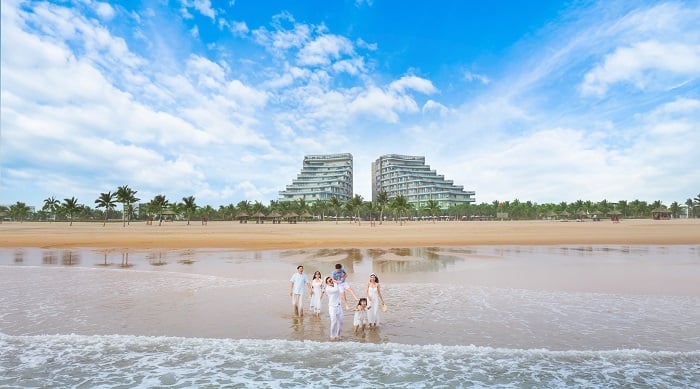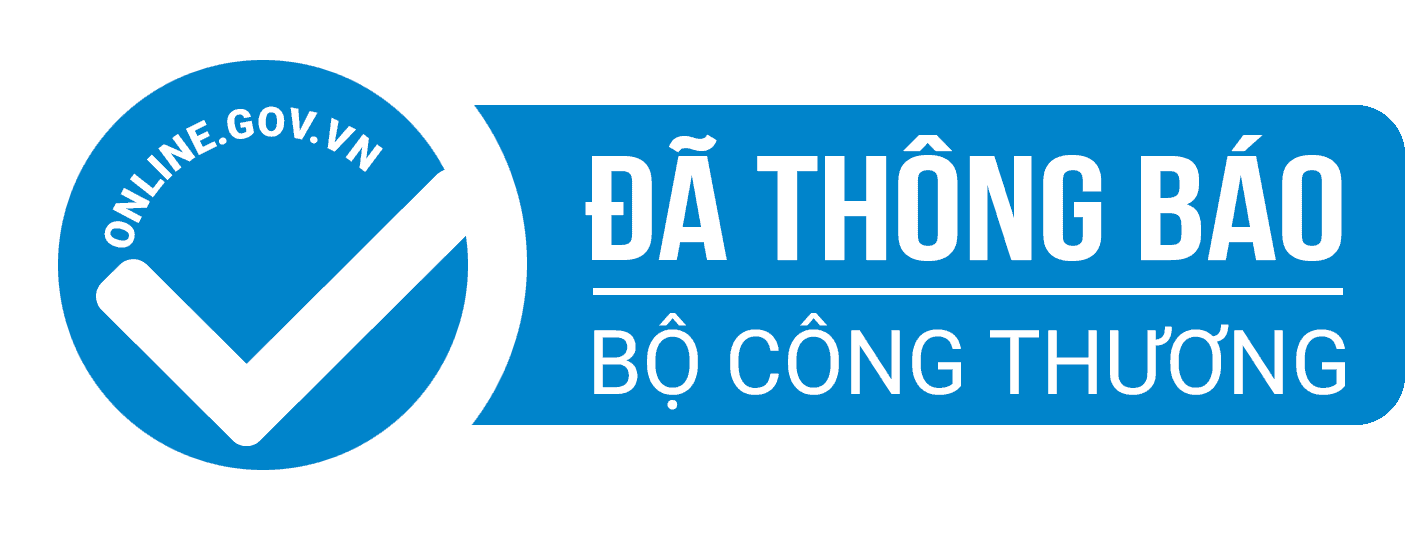
Vietnamese culture is a rich and colorful tapestry, full of fascinating aspects waiting to be explored. Spanning from deep-rooted historical traditions to unique cultural customs, Vietnam consistently beckons travelers in search of its cultural essence. During their Vietnam travel experience, visitors cannot overlook the value of the Vietnamese family. Serving as the cornerstone of society, families offer invaluable insights into the nation's cultural heritage, customs, and profound sense of familial reverence.
1. The key roles of Vietnamese family in society and culture
The Vietnamese family plays a multifaceted role in both society and culture, serving as a foundational element that influences various aspects of communal life. First and foremost, the family is often described as the "cell of society," symbolizing its fundamental importance in the social structure. Families are the cornerstone of communities, providing the basis for social organization and cohesion. Through the intricate network of familial relationships, individuals are connected to broader societal frameworks, contributing to the overall stability and functioning of society.
In addition, the family holds profound cultural significance as a sanctuary for Vietnamese people. Within the familial environment, individuals find emotional support, love, and companionship, fostering a sense of belonging and security. This nurturing atmosphere cultivates happiness and fulfillment, enriching the lives of each family member.
Moreover, the Vietnamese family promotes national economic development. With the nurturing and support of families, individuals are empowered to cultivate their skills and expertise in specialized fields, thereby contributing to the overall prosperity of the national economy.
Lastly, the Vietnamese family acts as custodians of cultural traditions and values, actively nurturing and promoting the rich tapestry of the nation's heritage. By instilling traditional values, customs, and beliefs in their members, families uphold cultural identity and foster a sense of pride in one's heritage.

>>> Read more: Life in Vietnam: A comprehensive guide to living the expat dream
2. The traditional values of Vietnamese family
Family is considered the foundation of Vietnamese society, and its values are cherished and passed down through generations. Here are some key aspects of traditional Vietnamese family values:
2.1. Filial piety and respect for elders
One of the most fundamental Vietnamese family values is filial piety and respect for elders, which entails the children’s reverence, loyalty, and devotion to their parents and ancestors. In Vietnamese culture, respecting elders is not merely a cultural norm but a moral obligation. Children are taught from a young age to obey and honor their parents, grandparents, and other elderly members of the family. This reverence is demonstrated through gestures of deference, such as bowing, addressing elders with formal titles, and prioritizing their needs and preferences.
2.2. Family harmony and unity
Family harmony and unity are highly valued in Vietnamese culture. It emphasizes the importance of maintaining peace, understanding, and cooperation within the family. Conflict and discord are typically avoided, and efforts are made to resolve disagreements amicably for the sake of maintaining familial harmony.
Vietnamese family dinners play a significant role in fostering unity and solidarity among family members. These gatherings provide an opportunity for relatives to come together, share a meal, and strengthen their bonds through laughter, storytelling, and shared experiences. Family members often work collaboratively to prepare and enjoy traditional Vietnamese dishes, reinforcing the sense of togetherness and mutual support.

2.3. Responsibilities within the family structure
The Vietnamese family structure is characterized by clearly defined roles and obligations, with each member expected to contribute to the well-being and functioning of the family unit. These responsibilities are typically determined by factors such as age, gender, and familial hierarchy.
Typically regarded as the heads of the household, parents are in charge of providing guidance, support, and protection to their children. Children, in turn, are expected to show obedience, diligence, and gratitude towards their parents. Siblings are encouraged to support and care for one another, fostering a sense of solidarity and interdependence within the Vietnamese family.
>>> Explore: Vietnam culture unveiled: Fascinating facts you need to know
3. How do people address members of a Vietnamese family?
In Vietnamese family culture, how members are addressed differs depending on whether they belong to the paternal or maternal side of the family and varies significantly based on gender and role. Generally, in the Vietnamese family tree, grandparents hold the highest status and respect. For certain families, the grandparents' parents (great-grandparents) may hold the utmost reverence.
It is also noteworthy that Vietnamese familial addressing conventions may vary from one region to another. For instance, in the north, the word for father is “bố,” while southern folks call their fathers “ba.” Mother is referred to as “mẹ” in the northern regions and as “má” in the south. Grandma and grandpa in Vietnamese are commonly called “Bà” and “Ông,” respectively, in most areas.
Let’s delve into the tables below for a comprehensive overview of how you can address typical roles within a Vietnamese family.

3.1. Family members
Father | Bố/Ba |
Mother | Mẹ/Má |
Brother | Anh - older brother |
Sister | Chị - older sister |
3.2. Members of the paternal side
Paternal uncle | Bác (trai) - father’s elder brother |
Paternal aunt | Bác (gái) - father’s elder sister |
Paternal grandfather | Ông (nội) |
Paternal grandmother | Bà (nội) |
Paternal great-grandparents | Cụ (nội) |
3.3. Members of the maternal side
Maternal uncle | Bác (trai) - mother’s elder brother |
Maternal aunt | Bác (gái) - mother’s elder sister |
Maternal grandfather | Ông (ngoại) |
Maternal grandmother | Bà (ngoại) |
Maternal great-grandparents | Cụ (ngoại) |

>>> Delve into intriguing facts about the Vietnamese language to gain more insight into Vietnamese culture!
4. Some important Vietnamese family celebrations
Vietnam boasts a rich tapestry of family celebrations, each deeply rooted in tradition and cultural significance. These celebrations serve as pivotal moments for the Vietnamese family to come together, honor cherished customs, and strengthen familial bonds.
4.1. Ancestors’ death anniversaries
Ancestors’ death anniversaries are one of the most solemn occasions in Vietnamese culture, serving as opportunities to commemorate the passing of loved ones within the family. These anniversaries hold deep meaning, emphasizing remembrance, gratitude, and prayers for the departed souls. A Vietnamese family typically observes this solemn occasion by conducting traditional rituals, including offering incense, prayers, and ceremonies to honor and remember their ancestors.
4.2. Lunar New Year (Tet Holiday)
Tet Holiday, also known as Lunar New Year, stands as the most significant celebration in Vietnam, marking the beginning of the new year according to the lunar calendar. It symbolizes reunion, gratitude, and hopes for a prosperous year ahead. During Tet, families come together to celebrate, visiting relatives, exchanging Tet greetings, and engaging in various activities such as spring cleaning, shopping for new clothes, offering prayers at temples, and enjoying traditional foods.

4.3. Mid-Autumn Festival
The Mid-Autumn Festival, alternatively referred to as Trung Thu, holds a cherished significance within Vietnamese culture, particularly among children. This enchanting celebration centers around family reunion and gratitude for the bountiful harvest. Families usually gather under the luminous glow of colorful lanterns, savoring delectable Vietnamese mooncakes and partaking in various festivities that highlight the spirit of togetherness during this day.
4.4. Vietnamese Family Day
Vietnamese Family Day is a relatively recent addition to the cultural calendar, established to honor the importance of family ties in society. This day serves as a reminder to cherish and strengthen familial bonds. Families often seize the opportunity to engage in activities together, such as outings, picnics, simple gatherings, or even a family trip, fostering a sense of unity and closeness among relatives.

>>> Discovering the intricate meanings behind Vietnamese names to understand the country's cultural tapestry!
To summarize, the Vietnamese family embodies resilience, harmony, and deep-rooted traditions. Across generations, the cohesive bonds within Vietnamese families serve as a cornerstone of support, fostering unity and mutual respect. Despite evolving societal dynamics, the essence of the Vietnamese family endures, sustaining cultural values and nurturing a sense of belonging. It stands as a testament to the enduring strength and importance of familial ties within Vietnamese communities worldwide.
Vietnam is an irresistible destination for families. While immersing themselves in Vietnam's breathtaking landscapes, families should seize the opportunity to discover the enchanting allure of various destinations. Whether it is the bustling capital city of Hanoi, the lively atmosphere of Ho Chi Minh City, the serene beauty of Phu Quoc's beaches, the distinctive charm of Nha Trang, the historic allure of Hoi An's old town, or the romantic ambiance of Ha Long Bay, each locale promises distinct and indelible experiences.
To fully embrace the wonders of these destinations, families should opt for a luxurious retreat at Vinpearl's exquisite hotel and resort. Nestled in picturesque settings, Vinpearl accommodations boast world-class amenities and impeccable service to ensure a truly unforgettable stay. From lavish spa treatments to gourmet dining experiences, every aspect of your comfort and enjoyment is meticulously catered to.
For an extra dose of excitement and adventure, be sure not to miss out on exploring the awe-inspiring entertainment complexes of VinWonders. Featuring thrilling rides, captivating shows, and interactive attractions, VinWonders promises endless fun for families and visitors of all ages, adding an extra layer of excitement to your Vietnam journey.


>>> Indulge in the top-notch amenities and services by booking rooms in Vinpearl Phu Quoc, Vinpearl Nha Trang, Vinpearl Resort & Golf Nam Hoi An, Vinpearl Resort & Spa Ha Long!
























